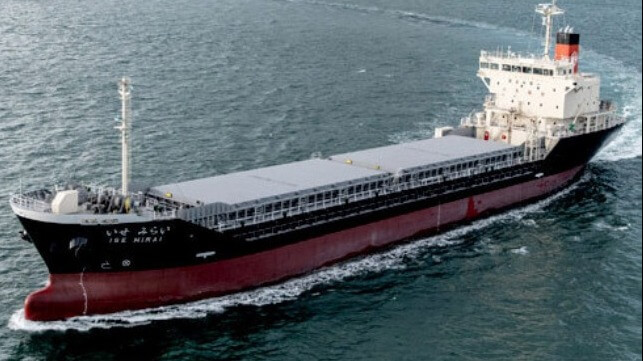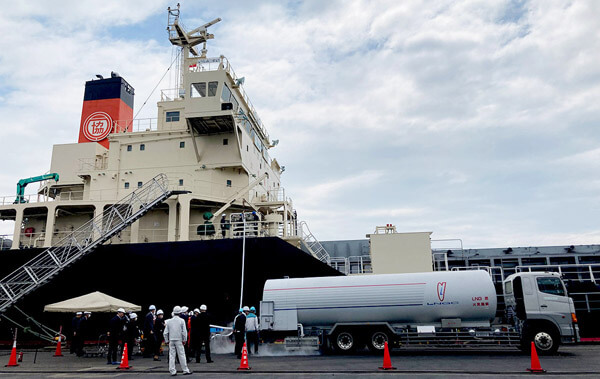Ship Using Bio-Methane from Cow Manure Completes Demonstration Trip

Japan’s Mitsui O.S.K. Lines (MOL) reports that working as part of a group of seven companies they have completed the first-ever test of sailing an ocean-going ship on fuel derived from cow manure. The effort comes as the shipping industry is looking for additional sources and forms of bio-methane to reduce the overall emissions from operations.
The advantage of this bio-methane fuel is that it is derived from available sources without increasing CO2 emissions and can be handled through the existing LNG supply chain. MOL reports that the use of LNG fuel is expected to reduce CO2 emissions by 25 percent over conventional fuel and through the partial use of liquified bio-methane CO2 emissions can be further reduced.
The test was conducted with the first LNG-fueled ocean cargo vessel built in Japan. Placed in service in 2020, the 7,800 dwt general cargo ship Ise Mirai was built as part of a government-sponsored project to optimize combustion efficiency in LNG-fueled gas engines and supply systems. The vessel is 390 feet long and operates as a mini-bulker in Japan’s coastal trade.
The project was first announced in February 2023 to test bio-methane derived from cow manure as a marine fuel. The liquefied bio-methane is made from a proprietary process developed by a company called Air Water. The biogas has been produced by cattle farmers and is about 60 percent methane and 40 percent carbon dioxide. The farmers are also using this as a power source.

The liquified bio-methane made from cow manure can be handled in the LNG supply chain (MOL)
The gas is derived from dairy-owned biogas plants, liquefied at about -160°C, separating and refining its main component, methane. The resulting methane can be compressed to 1/600th of its volume when liquefied, enabling it to be transported on a large scale. It is considered to be a carbon-neutral domestic energy source because it is made from cattle manure.
AirWater started full-scale operations at its production plant in 2022.

that matters most
Get the latest maritime news delivered to your inbox daily.
Engine manufacturer IHI Power Systems also participated in the trial along with Cenergy which carried out the bunkering operation. The vessel is owned and operated by Kyoudou Kaiun, MOL Coastal Shipping, and Techno Chubu in operation for Jera.
The companies plan to continue to explore the development of liquified bio-methane as a fuel source to contribute to sustainable operations.
